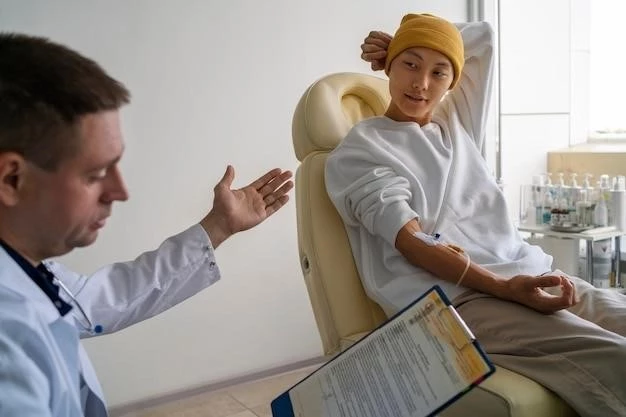Understanding Ivic Syndrome
When it comes to understanding Ivic Syndrome, it is crucial to delve into its causes, symptoms, diagnosis, and treatment options. This article aims to provide a comprehensive overview of this rare genetic disorder to help individuals and families affected by it.
Introduction to Ivic Syndrome
Ivic Syndrome, a rare genetic disorder, is characterized by a combination of symptoms affecting multiple systems in the body. This condition, first identified in 2016, poses challenges due to its complexity and variability in presentation.
Individuals with Ivic Syndrome may experience a range of symptoms, including intellectual disability, facial differences, skeletal abnormalities, and heart defects. Due to its rarity, proper diagnosis and management can be challenging, necessitating specialized medical care.
Understanding the genetic basis of Ivic Syndrome is crucial for tailored treatment approaches. With advancements in genetic testing and research, healthcare providers can offer more targeted interventions to improve the quality of life for individuals living with this condition.
Given the complexities of Ivic Syndrome, a multidisciplinary approach involving geneticists, pediatric specialists, and other healthcare professionals is essential. Supportive care, early intervention, and ongoing monitoring play key roles in addressing the diverse needs of those affected by this genetic disorder.
Causes and Genetics of Ivic Syndrome
Ivic Syndrome is primarily caused by mutations in the CREBBP gene, which plays a crucial role in various developmental processes. These mutations are typically inherited in an autosomal dominant pattern, meaning they only need to be present on one copy of the gene for the disorder to manifest.
The genetic mutations associated with Ivic Syndrome can result in a wide range of symptoms affecting the cognitive, craniofacial, musculoskeletal, and cardiac systems. Understanding the underlying genetic mechanisms of this syndrome is vital for accurate diagnosis and tailored treatment strategies.

Since Ivic Syndrome is a rare genetic disorder, genetic counseling is recommended for individuals and families affected by this condition. Genetic counselors can provide valuable information about the inheritance pattern, recurrence risks, and available testing options to empower decision-making and family planning.
Advances in genetic technologies have enhanced the ability to identify specific genetic mutations linked to Ivic Syndrome. By elucidating the genetic basis of this disorder, healthcare providers can offer personalized care and support to individuals with Ivic Syndrome and their families.
Symptoms of Ivic Syndrome
Ivic Syndrome presents a constellation of symptoms that vary in severity and combination among affected individuals. Common symptoms include intellectual disability, distinctive facial features such as a broad nasal bridge and widely spaced eyes, skeletal abnormalities like fusion of spinal bones, heart defects, and delayed growth and development.
Individuals with Ivic Syndrome may also exhibit behavioral challenges, hearing loss, vision problems, and anomalies in other organ systems. It is essential for healthcare providers to conduct a thorough clinical evaluation to identify and address the diverse spectrum of symptoms associated with this rare genetic disorder.
Early recognition of the characteristic features of Ivic Syndrome is crucial for timely intervention and management of associated health issues. Specialized medical care tailored to the specific needs of each individual can enhance quality of life and overall well-being.
Given the complexity of symptoms observed in Ivic Syndrome, a collaborative approach involving medical specialists, therapists, and support services is essential to address the multifaceted challenges faced by individuals living with this genetic condition. Regular monitoring and comprehensive care plans can help manage symptoms and optimize outcomes.
Diagnosis of Ivic Syndrome
Diagnosing Ivic Syndrome involves a comprehensive evaluation that considers the individual’s clinical symptoms, medical history, and genetic testing results. Healthcare providers may conduct physical examinations to assess characteristic features such as facial abnormalities, skeletal anomalies, and heart defects.
Genetic testing plays a pivotal role in confirming a diagnosis of Ivic Syndrome by identifying mutations in the CREBBP gene. Molecular testing techniques, including sequencing and deletion/duplication analysis, can help pinpoint the genetic alterations responsible for the condition.
Due to the rarity and complexity of Ivic Syndrome, a team-based approach involving geneticists, pediatric specialists, and genetic counselors is often necessary to navigate the diagnostic process effectively. Collaboration among experts with expertise in rare genetic disorders can streamline the diagnostic journey and facilitate tailored treatment planning.
Timely and accurate diagnosis of Ivic Syndrome is crucial for initiating appropriate medical interventions and supportive care. By understanding the genetic basis of this disorder and confirming the diagnosis through genetic testing, healthcare providers can better address the unique needs of individuals with Ivic Syndrome.
Treatment Options for Ivic Syndrome
Managing Ivic Syndrome involves a multidisciplinary approach aimed at addressing the diverse symptoms and medical needs of affected individuals. While there is no cure for Ivic Syndrome, treatment focuses on symptom management, supportive care, and early intervention strategies.
Individuals with Ivic Syndrome may benefit from interventions such as physical therapy, speech therapy, occupational therapy, and educational support to optimize development and functional abilities. Regular monitoring by healthcare providers is important to track progress and adjust treatment plans accordingly.
For specific symptoms such as congenital heart defects or skeletal abnormalities, surgical interventions may be necessary to improve quality of life and mitigate potential health complications. Close coordination between medical specialists is essential to ensure comprehensive and coordinated care for individuals with Ivic Syndrome.
Genetic counseling plays a valuable role in providing information and support to individuals and families affected by Ivic Syndrome. Genetic counselors can offer guidance on genetic testing, inheritance patterns, and family planning options, empowering informed decision-making and promoting holistic care.
Living with Ivic Syndrome⁚ Support and Management
Living with Ivic Syndrome can present unique challenges that require ongoing support and management strategies. Support networks comprising medical professionals, therapists, educators, and support groups play a crucial role in enhancing the quality of life for individuals with Ivic Syndrome and their families.
Education and awareness are key components of managing Ivic Syndrome, as they empower individuals and caregivers to understand the condition, access resources, and advocate for personalized care. Open communication with healthcare providers and active participation in treatment planning are essential for optimal outcomes.
Psychosocial support services can help address the emotional and psychological impact of living with a rare genetic disorder like Ivic Syndrome. Counseling, mental health resources, and peer support can provide valuable tools for coping with the challenges associated with the condition.
Empowering individuals with Ivic Syndrome to lead fulfilling lives involves creating an inclusive environment that accommodates their unique needs and abilities. By fostering a supportive community and promoting acceptance and understanding, we can promote resilience and well-being in individuals living with Ivic Syndrome.
